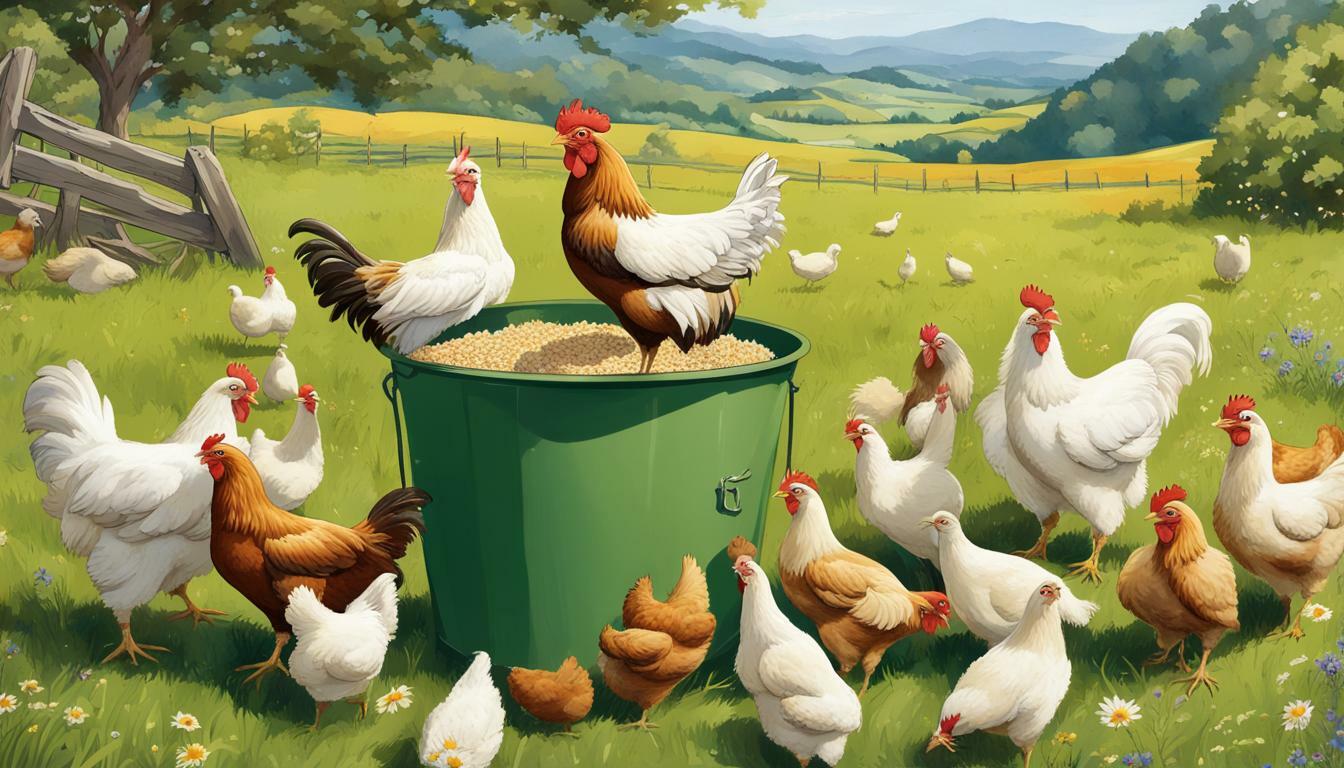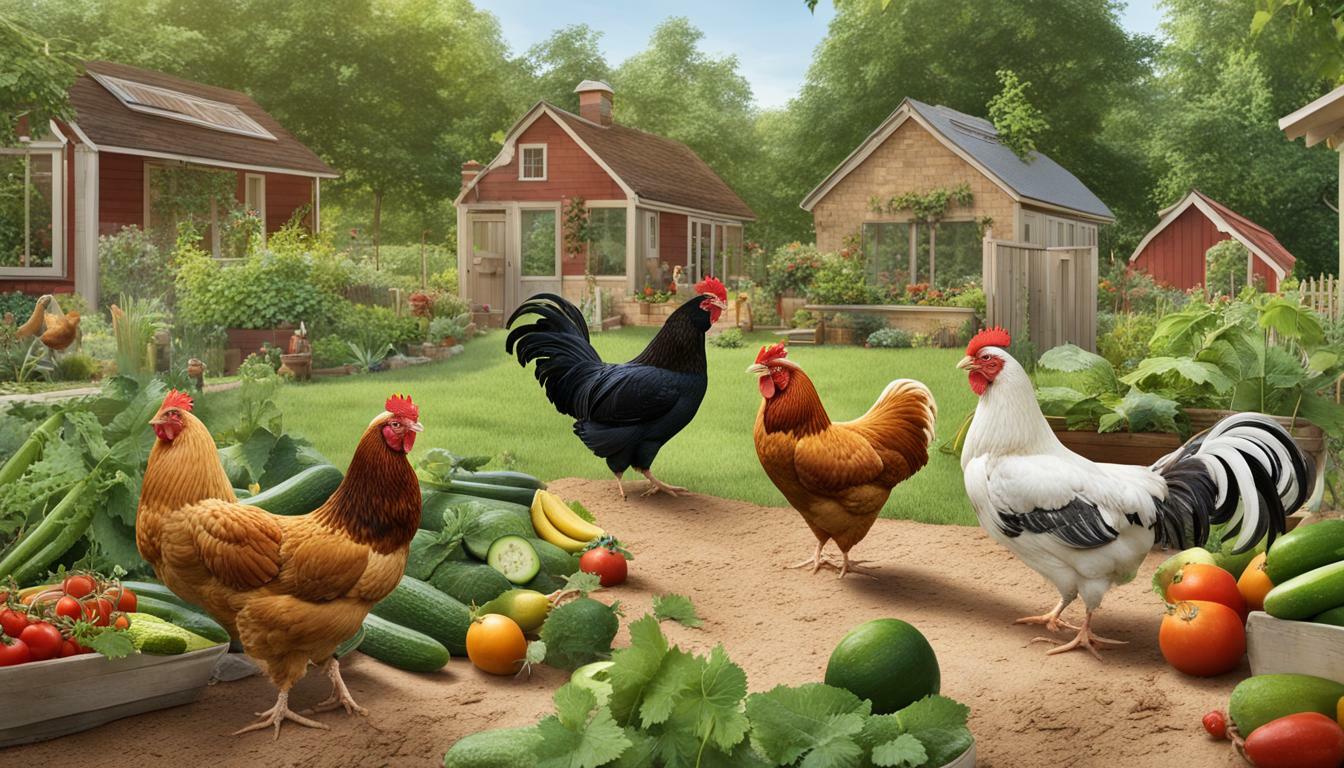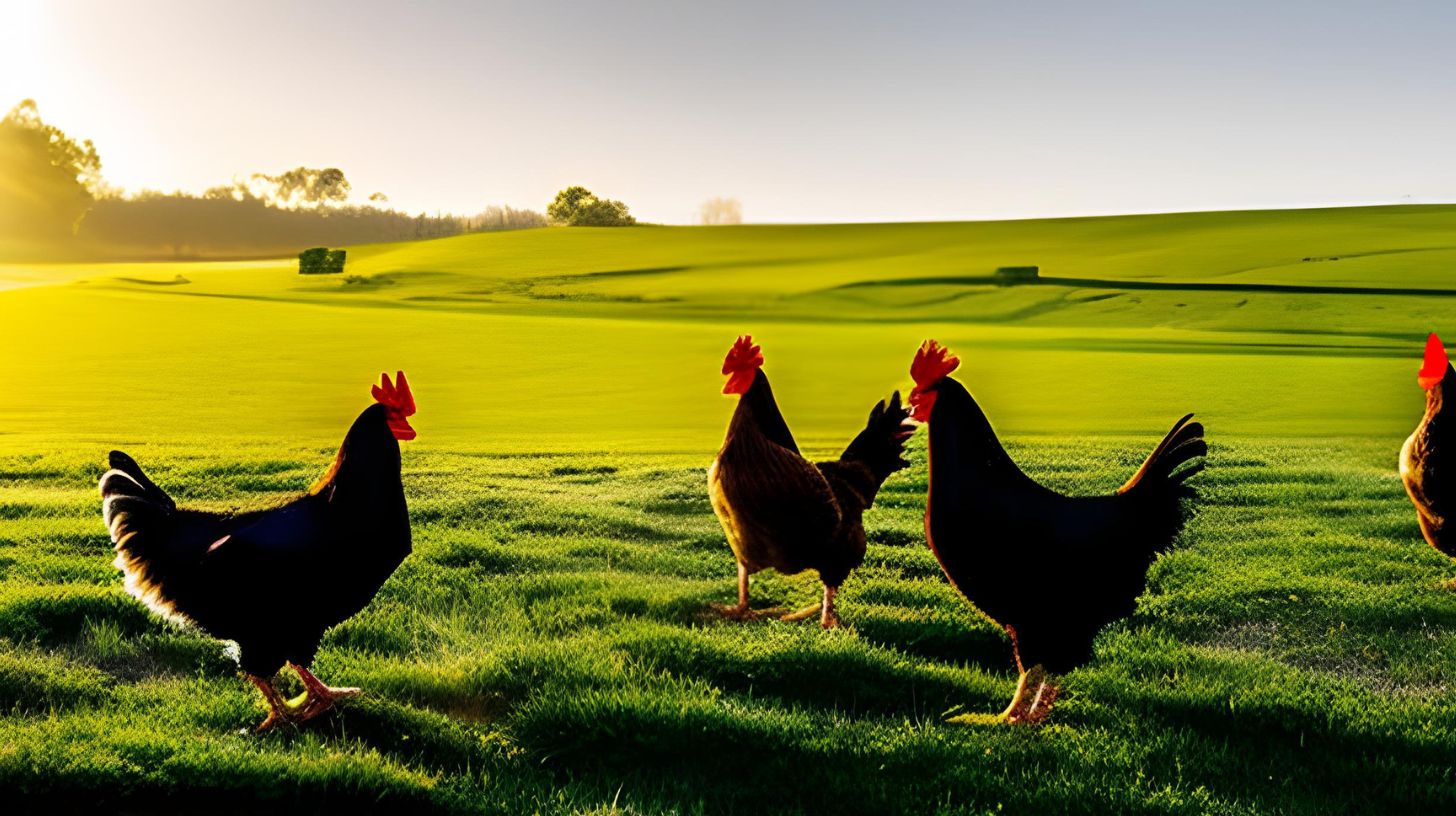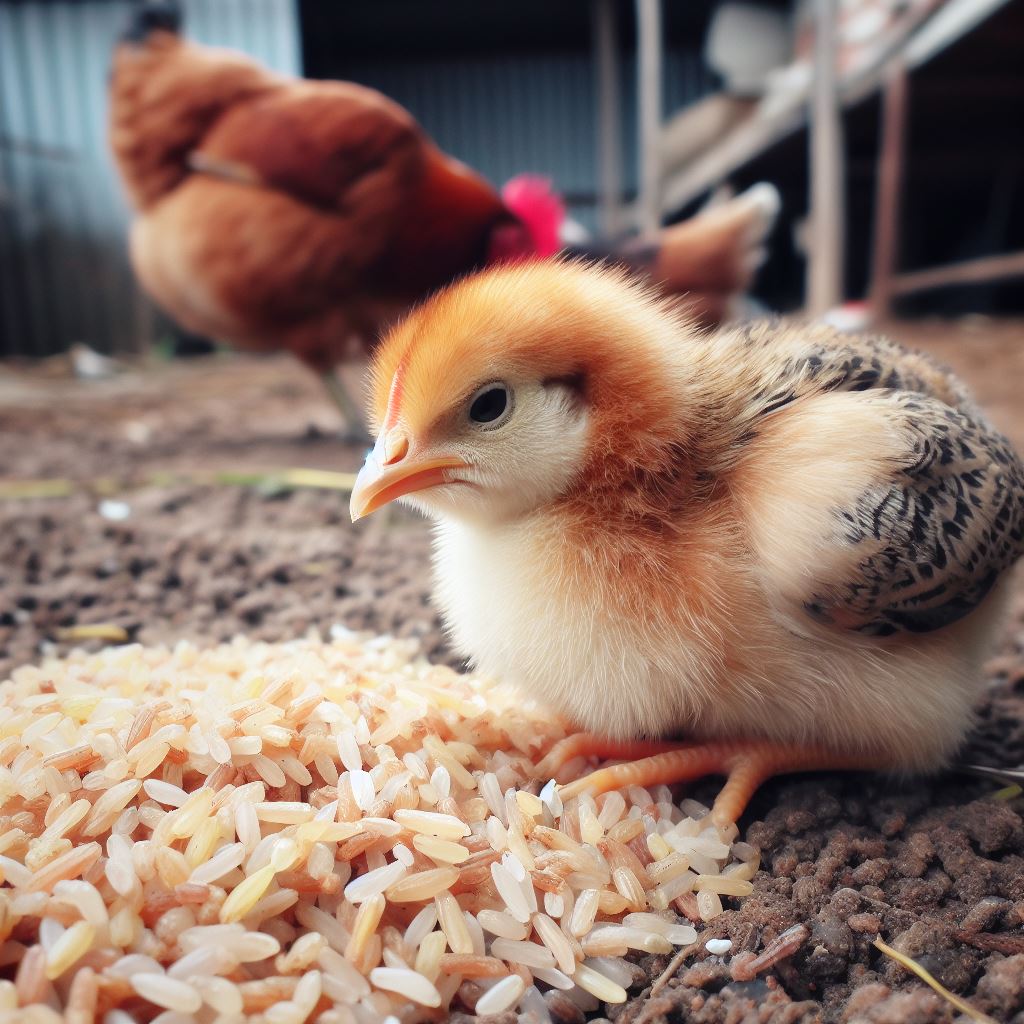Can Chickens Eat Goat Feed?

Table of content:
As a chicken owner, you want to ensure your feathered friends are receiving a well-balanced diet. With so many feed options available, you might be wondering if goats’ feed is suitable for chickens. In this section, we will explore if chickens can eat goat feed and provide a comprehensive guide to feeding your chickens a healthy diet.
Key Takeaways:
- Chickens require a balanced diet that includes proteins, carbohydrates, vitamins, and minerals.
- There are various types of feed available for chickens, including commercial chicken feed, scratch grains, and kitchen scraps.
- Goat feed can be consumed by chickens in small quantities but should not be the primary source of their nutrition.
Understanding Chicken Nutrition
Feeding chickens a healthy, balanced diet is crucial for their overall health and well-being. Chickens require proper nutrition to grow and produce eggs. Understanding their nutritional needs is key to keeping them healthy and productive.
Proteins
Protein is essential for chickens’ growth, immune system, and egg production. Good sources of protein for chickens include soybean meal, fish meal, and meat and bone meal. Chickens need a diet that contains at least 16% protein for optimal health.
Carbohydrates
Carbohydrates provide energy for chickens to move, scratch, and produce eggs. Good sources of carbohydrates for chickens include wheat, corn, and barley. Chickens’ diet should contain at least 70-80% carbohydrates to meet their energy needs.
Vitamins and Minerals
Vitamins and minerals are essential micronutrients that play a critical role in chickens’ health. Chickens require a variety of vitamins and minerals, including vitamin A, vitamin D, calcium, and phosphorus. A lack of these micronutrients can lead to health issues, such as weakened bones and decreased egg production.
Safe Food for Chickens
It’s important to provide chickens with safe and appropriate food. Avoid feeding them spoiled or moldy food, as it can lead to health issues. Additionally, avoid giving them foods that are toxic to chickens, such as chocolate, avocado, and onions.
Consult a Poultry Expert
If you’re unsure about what to feed your chickens or how to provide them with a balanced diet, consider consulting with a poultry expert or veterinarian. They can give you personalized advice on feeding practices and answer any questions you may have.
Types of Feed for Chickens
When it comes to feeding your chickens, there are various options available, each with its pros and cons. Here are some of the most common feed types:
Commercial Chicken Feed
Commercial chicken feed is a complete diet that provides all the necessary nutrients for your chickens. It comes in different forms, including crumbles, pellets, and mash. Most commercial feeds contain a balanced amount of proteins, carbohydrates, vitamins, and minerals, making them an excellent choice for most backyard flocks. However, some chicken keepers prefer to avoid commercial feed due to the cost or concerns about additives.
Scratch Grains
Scratch grains are a mixture of grains, such as corn, wheat, and barley. They are a good source of energy, but they don’t provide a complete diet for your chickens. Therefore, scratch grains should only be used as a treat, and not as the primary source of food. Feeding too many scratch grains can lead to obesity and health problems.
Kitchen Scraps
Kitchen scraps are a great way to reduce food waste and provide your chickens with additional nutrients. However, not all scraps are safe for chickens to eat. Avoid feeding your chickens anything moldy, salty, or spicy, and limit the amount of citrus fruits and onions you give them. Some safe kitchen scraps include fruits, vegetables, bread, and cooked pasta or rice.
Whichever feed type you choose, always make sure it is fresh, clean, and free from mold and contaminants. Offer a variety of feed options to ensure your chickens receive a balanced diet.
Can Chickens Eat Goat Feed?
If you have chickens and goats on your farm, you might have wondered if your chickens can eat goat feed. The answer is yes, but only in small quantities. While goats require a different diet than chickens, some of the ingredients in goat feed can be beneficial for chickens.
However, it is important to note that goat feed should not be the main source of your chicken’s nutrition. Chickens require a balanced diet that includes protein, carbohydrates, vitamins, and minerals. Feeding your chickens only goat feed can cause nutrient deficiencies and lead to health problems.
If you choose to feed your chickens goat feed, it is recommended to do so sparingly. You can mix a small amount of goat feed with their regular chicken feed or offer it as a treat once in a while.
It is important to keep in mind that some goat feeds may contain ingredients that are harmful to chickens, such as copper sulfate. Additionally, some goat feed may be medicated, which can be dangerous for chickens. Always read the label and consult with a poultry expert or veterinarian if you have any questions about the safety of a particular feed.
Proper Feeding Practices for Chickens
Now that you have a better understanding of chicken nutrition and the types of feed available, it’s time to dive into proper feeding practices for your feathered friends.
Offer a Balanced Diet
Chickens require a balanced diet that includes proteins, carbohydrates, vitamins, and minerals. This can be achieved through a combination of commercial chicken feed, scratch grains, and kitchen scraps. When feeding your chickens, be sure to offer a variety of foods to ensure they receive all the nutrients necessary for their health.
Provide Fresh Water
It’s essential to provide your chickens with fresh, clean water at all times. Water helps regulate their body temperature, aids in digestion, and is crucial for egg production. Make sure the water source is easy to access and change it daily to prevent contamination.
Supplement with Greens and Insects
In addition to their regular diet, you can supplement your chickens’ diet with fresh greens and insects. Chickens love to forage and will happily consume a variety of greens such as lettuce, kale, and spinach. Supplementing their diet with insects such as mealworms or crickets can also provide an additional source of protein.
Feed in Moderation
While it’s important to provide your chickens with a balanced diet, overfeeding can lead to health problems such as obesity and egg-laying issues. Follow the recommended feeding amounts on the chicken feed packaging and monitor your chickens’ weight and egg production to ensure they are healthy.
Avoid Toxic Foods
Chickens are more sensitive than other animals, and certain foods can be toxic to them. Avoid feeding them avocado, chocolate, coffee, raw or dried beans, and anything moldy or spoiled.
Consult with a Veterinarian or Poultry Expert
If you have any concerns about your chickens’ diet, consult with a veterinarian or poultry expert. They can provide personalized advice and help you create a feeding plan that meets your chickens’ specific nutritional needs.
Conclusion
Feeding chickens can be a rewarding experience, but it’s important to prioritize their nutrition to ensure their health and well-being. While goats and chickens have different dietary requirements, goat feed can be fed to chickens in small quantities. However, it’s crucial to provide them with a balanced diet that includes proteins, carbohydrates, vitamins, and minerals.
There are various types of feed available for chickens, including commercial chicken feed, scratch grains, and kitchen scraps, each with their own pros and cons. It’s important to offer your chickens safe and appropriate food, and to follow proper feeding practices such as providing fresh water and supplementing their diet with greens and insects.
Always consider consulting with a veterinarian or poultry expert for personalized feeding advice. By prioritizing poultry nutrition, you can ensure that your chickens lead happy and healthy lives.
Welcome. I’m Adreena Shanum, the proud owner of this website, and I am incredibly passionate about animals, especially poultry. I founded adreenapets.com as a labor of love, stemming from my desire to share my knowledge and experiences with poultry enthusiasts worldwide.




